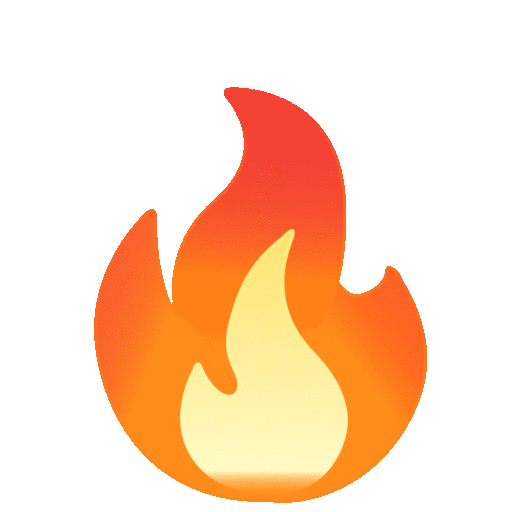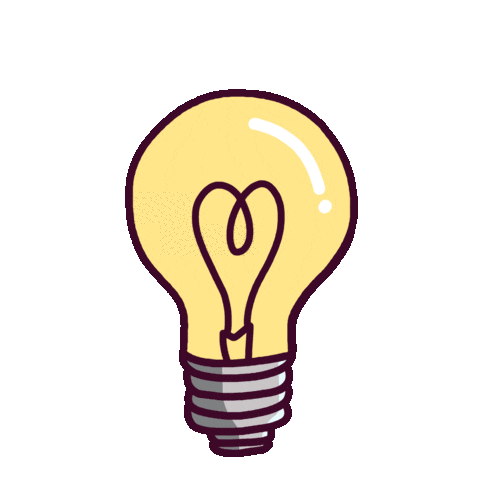
CAM™ MasterClass
In addition to the internship placement, students join the CAM™ MasterClass, a one-year learning experience with our organization to learn about CAM™ (Lea S. Denny, 2016). Developed by Lea S. Denny, MS, LPC, NCC, NMT this group is guided by our CAM™ Mentors & CAM™ Practitioners in collaboration with community partners that are thought leaders and innovators around justice and healing. A CAM™ MasterClass cohort consists of interns from clinical mental health counseling, social work, occupational therapy, nonprofit management, and public health building relationships. Here we encourage openness, honesty, and vulnerability, while providing guidance in exploring one’s own healing and growing journey. In addition, interns have the opportunity to lead and engage in our Healing Dojo podcast.
In the CAM™ MasterClass we take an interdisciplinary trauma-informed healing-focused approach to raise awareness and community action on the complex experiences of social injustice, historical trauma, intergenerational trauma, and Persistent Toxic Systems & Environments™ (PTSE™) (Lea S. Denny, 2016). Our goal is to empower new counselors to advocate and embody a culturally responsive practice when serving in diverse communities while learning more about the CAM™ theoretical orientation.
With this approach our students go into community to provide our Mental Health Without Borders™ Programs (Lea S. Denny, 2020). These programs are our intergenerational preventative outreach work to address complex grief, suicide, and community mental health and wellness. Built as a whole health justice and trauma informed model. CAM™ Mental Health Without Borders™ Approach addresses the systemic barriers in help seeking, accessing mental health care, and triaging effectively to mental health and substance use services. Here we continue to grow the conversations around healing from racial, systemic, injustice, and historical trauma that impacts daily living and mental health and community felt safety. This part of our training to improve culturally responsive and community-based care with future mental health professionals who will serve historically underinvested and chronically underserved people from Indigenous, Black, Latinx, and refugee communities.
Fusing the Value of our Knowledge, Wisdoms, Ways, and Beliefs

Fire
Indigenous Teachings

Lightbulb
Western Teachings
Mental Health Without Borders™ Approach

Community Work
Culturally responsive healing-informed practices
Triage for more urgent needs
Community-led mental health
Teach healing interventions
SANE provider advocacy
Social emotional support
Victim advocacy
Wellness-checks
Legal advocacy
Grief support
CAMPsites™
Clinical Work
Social Emotional Support
Virtual Circles of Care™
SANE provider advocacy
Individual therapy
Group therapy
Victim advocacy
Support groups
Legal advocacy
Tele-health
Serving Indigenous and Under-Served Communities

“During the long healing process, I fell back on what elders call ‘a Cherokee approach’ to life – to think positively, to take what is handed out and turn it into a better path.”
There are over 574 federally recognized tribes (United States of America Government, 2022) with differing languages, traditions, healing ways, and wisdoms. These ways of knowing predate the colonization of Turtle Island over 525 years ago. The resilience from Indigenous communities comes from generations of grandmothers, sisters, mothers, aunties, daughters, and cousins who nurtured and cared for their communities and protected the sacred alongside our two-spirit relatives, boys, and men. In many of our Indigenous languages the word “illness” does not exist but there were many different words to describe antidotes and medicines that made us whole and well. Having a strength based, culturally rooted, and collective approach to caring for our communities and kin is not a new way of being. It is time immemorial of the generational practices of calling back, observing, and honoring our elders stories of our past, embodying the teachings of our ancestors Post Traumatic Wisdoms (Perry, 2021), and listening to our families and communities who continuously inform us what healing and health and social justice is.
Pre-colonization, Indigenous societies showed great reverence for women; focused on spirituality and one’s relationship with the world; and protected each other. Values of collectivism, interconnectedness, humility, and peace were paramount. At the heart of culture is the sense of community belonging and reciprocity. The power of knowing that you matter and belong to your community cannot be underestimated. Relational and cultural health is a protective factor. Culture has sustained our communities through unmeasurable and unimaginable times and will continue to be the medicine for our healing needs. However, there is a chronic and intentional invisibility by Western societies and the Global North that dismisses and overlooks the collateral damage and moral injury ensued onto Indigenous communities. These transgenerational traumas and unforgiving losses are experienced on an individual, familial, and community levels as Historical Trauma Unresolved Grief (HTUG) (Yellow Horse Brave Heart, 1998).
“In spite of our agonizing history, Native American people find much to celebrate. The songs, the dances, the culture and traditions surrounding planting and harvests, the prayers that are sent upward for healing and peace, and the welcoming of children into our families, are all reasons for us to keep moving forward with optimism.”
Hear From Our Previous Interns
“I was given the opportunity to sit with my discomfort, know what it means to be uncomfortable and realize the impact that it has on myself. Understanding my own biases and how I will always hold onto some bias. However, to have practice of being aware of it, holding space for it, and being in the practice of not letting the bias have impact on the work that I do.
“Through the MasterClass, I have learned so much, clinically, socially, systematically, etc. I have understood the impact of words, of actions, and of intent. I have been able to see more clearly and have allowed myself to heal. Through my healing I have allowed myself to be vulnerable with my shame and to allow myself to heal through it. It is a safe space where we can self-discover and reflect which consequently leads to healing not only for one but for all. The MasterClass is a way to help heal the healers and to teach the healers more than what they have learned in the classroom about people and about what it means to heal.”
- Odessa Peters, Counseling Intern 2020-2021
Our Interns in Action
Healing Dojo Podcast

Each academic year our CAM™ MasterClass cohort has the opportunity to participate in the Healing Dojo podcast. This innovative podcast is an intern-led opportunity for our emerging practitioners to activate and embody Mental Health Without Borders™. As students enter the field we believe hope they continue their lifelong learning and healing journeys. A podcast is one way to increase capacity for healing and staying current. Join the HIR Wellness Institute team, interns, and Healthy Words™ literary head chef Fondé Bridges as he collaborates with us to engage in meaningful conversation around the complexities of our collective healing, learning, and living.
Season 1 of the Healing Dojo Podcast
“Women Pioneering Healing”
Season 2 of the Healing Dojo Podcast
“From Boys to Men, Healing the Patriarchy Within”
Teachings and Terms Found in Our Program

Footnotes
Global North: The countries, located primarily in the northern hemisphere, that have historically been identified as “the West” or “first world” due to perceptions of their relative wealth, technology, and global dominance. (Graml, Meyer-Lee, & Peifer, 2021)
Lighthouses: A term developed to support Mental Health Without Borders Approach™ programs. These are identified trusted, accessible, and safe community spaces that organizations partner with to host CAMPsites™ in.
Turtle Island: A name that some Indigenous people use to describe the continent of North America.
Two-spirit: An umbrella term with Indigenous origins that bridges Indigenous and Western understanding of gender sexuality. This often represents a variety of different meanings and teachings for individuals.
Citations
Bridges, F. (2020). Healthy Words. Milwaukee, Wisconsin.
Denny, L. S. (2016). Community Activated Medicine Provider Sites™ (CAMPsites™). Milwaukee, Wisconsin, United States of America.
Denny, L. S. (2016, November 13). Community Activated Medicine™ (CAM™). All Nations One Tribe. Milwaukee, Wisconsin, United States of America.
Denny, L. S. (2016). Intergenerational Healing Approach. Milwaukee, Wisconsin, United States of America: HIR Wellness Institute.
Denny, L. S. (2016). Persistent Toxic Systems and Environments. Milwaukee, Wisconsin, United States of America: HIR Wellness Institute.
Denny, Lea S. (2016). Triple Attunement. Milwaukee, Wisconsin, United States of America: HIR Wellness Institute.
Denny, L. S. (2020). Circle of Care™. Milwaukee, Wisconsin, United States of America: HIR Wellness Institute.
Denny, L. S. (2020). Mental Health Without Borders™. Milwaukee, Wisconsins, United States of American: HIR Wellness Institute.
Gorman, A. (2018, November 27). Native People Are Taking Center Stage. Finally. Retrieved from New York Times: https://www.nytimes.com/2018/11/27/smarter-living/the-edit-native-american-heritage-month.html
Graml, G., Meyer-Lee, E., & Peifer, J. S. (2021). People-Centered Approaches Toward the Internationalization of Higher Education. IGI Global Publisher of Timely Knowledge, 16.
Perry, D. B. (2021, April 24). Dr. Bruce Perry on How to Transform Pain Into Power. (Oprah, Interviewer) OWN TV.
Rappaport, D. (2019). Wilma's Way Home: the Life of Wilma Mankiller. Los Angeles, New York: Disney Hyperion.
United States of America Government. (2022, January 7). Federally Recognized Indian Tribes and Resources for Native Americans. Retrieved from USA Gov: https://www.usa.gov/tribes
Yellow Horse Brave Heart, D. M. (1998). Historical Trauma Unresolved Grief Model.












